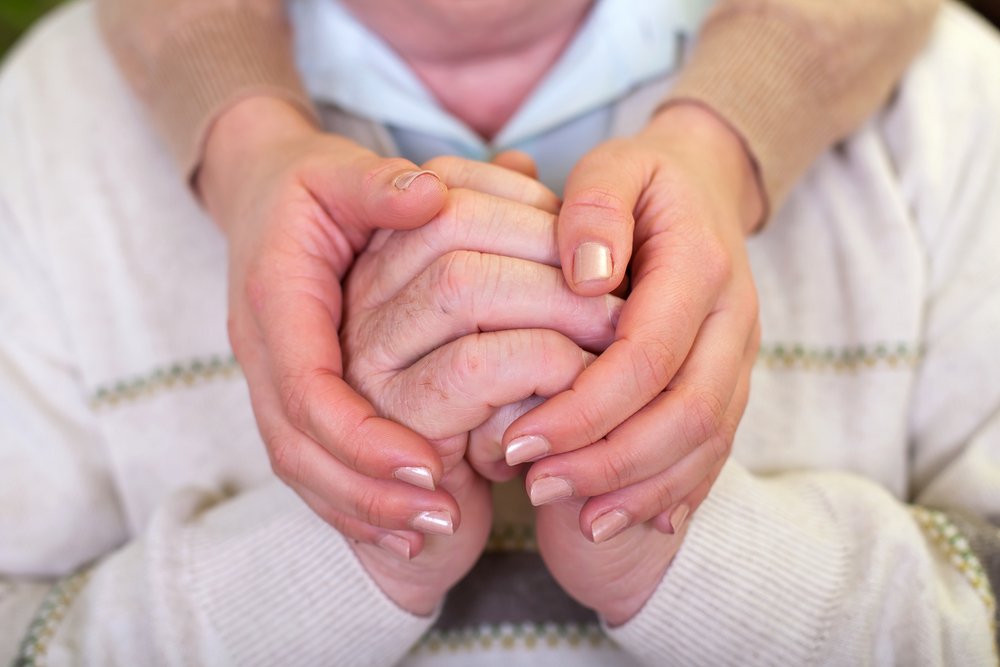When your family member starts to experience the symptoms of Alzheimer’s and receives a diagnosis, it may be difficult to know what the right measures will be to take in order to provide the best type of care for your loved one. As the disease progresses family may feel their role as caretaker has become increasingly harder for the family member to perform at the rate or ability they once did. Psychologists often refer to the families and caregivers of those with memory loss as the ‘invisible second patients’ as it has a ripple effect that can impact the entire family.
The effects of Alzheimer’s disease can be particularly challenging for primary caregivers within the family. In addition to dealing with the normal activities of everyday life, caregivers must also provide round-the-clock care and support to their loved one. Studies have shown that primary caregivers often become physically and emotionally overburdened and experience high rates of physical illness, social isolation, and emotional distress – including depression. Sadly, the price of their devotion to their loved one is often a poorer quality of life for themselves.
Thus, an introduction to home care options may relieve some stress from these tasks and who to delegate them to; and hiring home health care may help them in still maintaining their independence but also receive some much needed help or stress relief from those tasks.
Research
If you have a loved one who is living with Alzheimer’s, it is imperative that you take specific action as early as possible; not only for their sake, but for the well-being of their family and loved ones. Both the Mayo Clinic and the Alzheimer’s Association advise that these two things are essential:
- Become as educated and informed as you can about the disease so you always know what to expect.
- Get help; taking care of a loved one with progressive memory loss typically becomes too big of a job for one human being.
Alzheimer’s is progressive in nature, but steady changes in behavior and function causes require greater amounts of care, time and energy from the caregiver. Understanding the disease process so you can plan and prepare for the future should be a priority.
The Effects Of Alzheimer’s on Family Caregivers
Some of the major areas where Alzheimer’s affects family members and caregivers are diverse and complex. They include:
- Increased Risk of Physical Illness –Caregivers report a greater number of physical health problems and worse overall health compared with non-caregivers. Caregivers are at increased risk of various problems, including cardiovascular problems, lower immunity, poor sleep patterns, slower wound healing and higher levels of chronic conditions such as diabetes, arthritis, ulcers and anemia.
- Diminished Emotional Well-Being – Levels of psychological distress are significantly higher in dementia caregivers than in other types of caregivers and non-caregivers. Caregiver stress can result in serious psychological problems, including depression and anxiety that should be treated immediately.
- Increasing Social Isolation –Caregivers often lack social contact and support and, as a result, experience feelings of social isolation. They tend to sacrifice their own leisure pursuits and hobbies, reduce time with friends and family and give up or reduce employment in order to devote time to their loved one.
- Growing Financial Challenges –Costs associated with caring for a loved one with Alzheimer’s disease are high. Direct costs include physician care, diagnostic tests, pharmaceuticals and personal nursing care. Indirect costs include loss of earnings by family caregivers as they relinquish or reduce employment and paid hours out of choice or necessity.
Support for Family Caregivers Is Important For Their Well-Being
Part of living well with Alzheimer’s is adjusting to your ‘new normal’ and helping family and friends do the same. Adequate support resources are vital for the individual providing the majority of the care. Experts say that a “safety net” of support can actually reduce anxiety for caregivers by increasing the perception that resources are available to help handle the stressful situations.
Support can be found in many different forms, including the help of other family members and close friends, partnerships with health professionals, community resources and other useful tools such as support groups, respite care, help lines, online training assistance and outside professional care.
Reaching Out For Help
Unicity Healthcare is licensed as a Healthcare Service Firm by the New Jersey Division of Consumer Affairs (New Jersey Office of the Attorney General). As experts in the homecare field, we understand that no two clients are the same, and, as such, we develop an individualized service plan, incorporating all aspects of the person’s life and family. The steps involved in this process is vital in creating the Unicity Homecare approach, one that stresses personalization, dedication and quality care.
Unicity Healthcare provides non-medical and medical homecare services to our clients. Our services are customized and range from a few hours per day to 24/7 (live-in). Our licensed, trained and experienced Home Health Aides can assist you or your loved one with maintaining a daily routine, from bathing, eating, socializing, or simply going for a walk outside.
Our mission is to help our clients stay in their familiar surroundings, remain independent and live an active, healthy, and happy life. All our services are provided by licensed aides (CHHAs or CNAs), and supervised by a Registered Nurse, who, in collaboration with the client and his/her family, develops a customized plan of care. We also keep our clients’ families updated regularly on the situation of their loved ones, and we provide guidance when necessary.
Helping Families Help Their Loved Ones – And Themselves
Loved ones with Alzheimer’s disease or other types of dementia require specialized care and support. Memory loss caused by Alzheimer’s disease, dementia or another form of memory impairment doesn’t only affect the person who has it – it affects the entire family. If you have a loved one with early- to mid-stage memory loss, you know how challenging it can be to provide the care that’s needed while trying to maintain balance in your life. As care needs increase, you may not be able to meet them physically or emotionally. It’s often difficult to be available to care for your loved one’s health and well-being around the clock.
Unicity Healthcare specializes in Alzheimer’s and Dementia Care. In fact, many renowned healthcare providers and Elderly service providers in New Jersey call on our expertise when dealing with people with Alzheimer’s/Dementia.
Alzheimer’s being a progressive disease, it is essential care be supervised and adjusted at each level of Alzheimer’s disease: the early stage, the middle stage and the late stage. Our Senior Advisors make sure to guide you through the appropriate care alternatives during the progression of the disease.
Not only are our Care Managers dementia experts/practitioners, they have significant experience dealing with Alzheimer’s clients and their families. They know how to act, interact, provide care, engage, and redirect to provide a safe, happy, and failure-free environment.
Our Geriatric Care Management team has also created a unique plan of activities for people with Dementia. Whether they live at home or in an assisted living facility, our clients and their families can benefit from this plan of activities. Planning activities for people with dementia is a continuous process. As the disease progresses, Our Senior Advisors will keep the activities flexible and make the appropriate adjustments.
Of course, since each person is unique, it is vital for us that our caregivers receive extensive background information, detailed care plans, and instructions in how to best care for each client.
We’re Here To Help
When the time comes to consider home care for your loved one, you may seek help from Unicity’s qualified home care professionals to help ease the burden.
For more information please contact us at:
Email: info@unicity-ec.com
Explore our website: Unicity Healthcare www.unicity-ec.com




